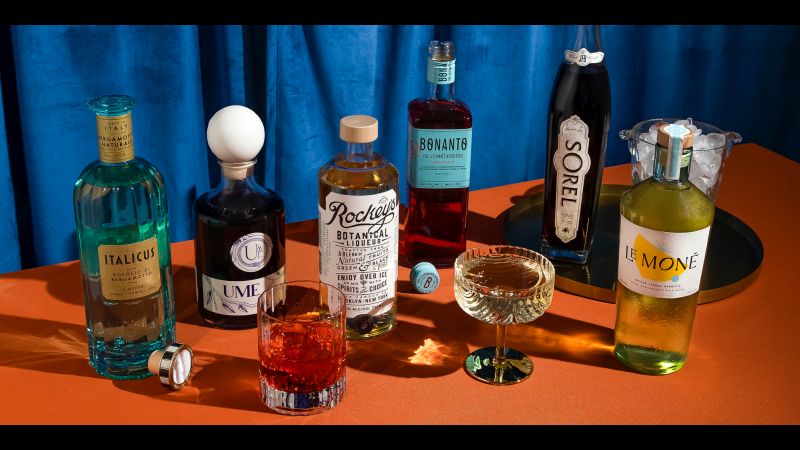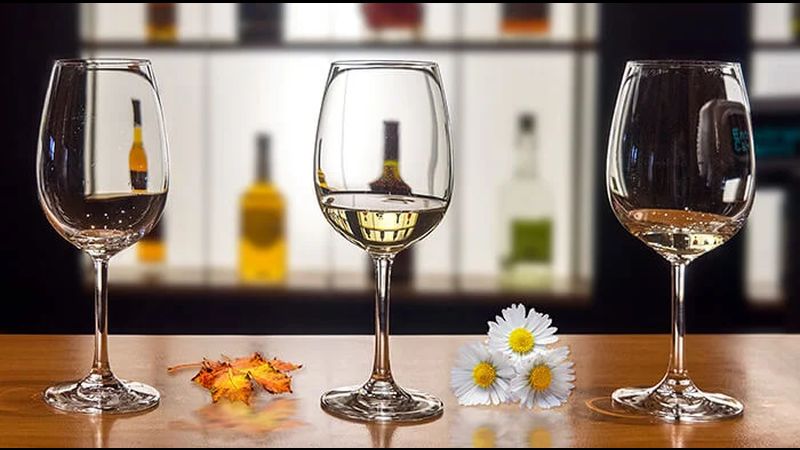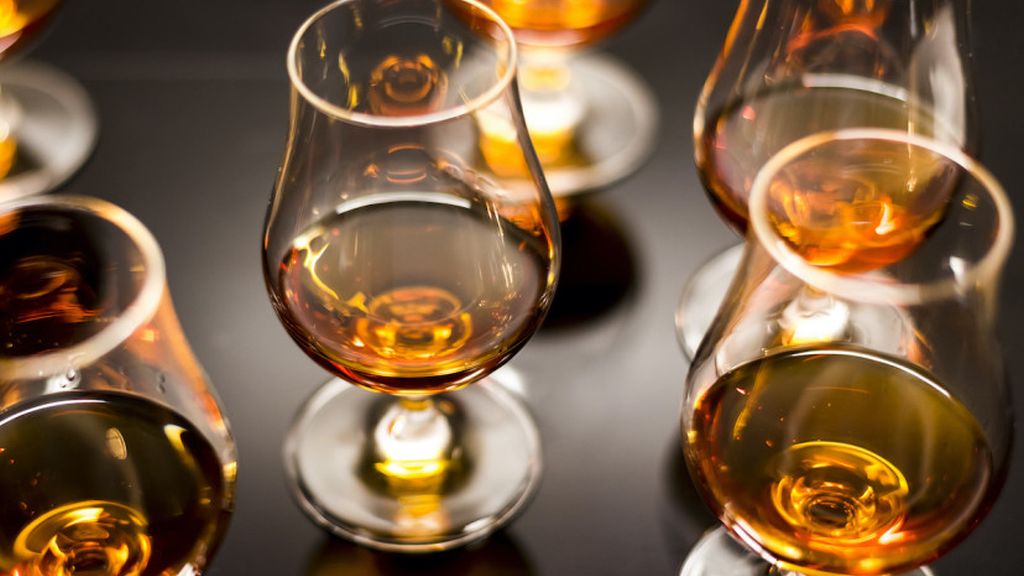Liqueurs and liquors are two distinct categories of alcoholic beverages, each with its own unique characteristics. Understanding the differences between them can enhance your appreciation of these delightful libations. In this article, we delve into the world of liqueur and liquor, exploring their production processes, flavor profiles, and alcohol content. Let’s embark on this flavorful journey together.
Liquor: Fermentation and Distillation
Liquor, also known as hard alcohol or spirits, undergoes a rigorous process of fermentation and distillation. Starting with a base ingredient like grains, molasses, or sugarcane juice, liquor is fermented to convert sugars into alcohol. This fermented liquid is then distilled to increase its alcohol content and concentrate the flavors. The result is a wide range of liquors with varying tastes, strengths, and aromas.
Liqueur: A Sweet and Complex Elixir

Unlike liquor, liqueurs are renowned for their sweet and complex flavors. They typically begin with a liquor base, to which a variety of herbs, spices, and other flavorings are added. This infusion process contributes to the distinctive taste profiles found in different types of liqueurs. Liqueurs can be enjoyed on their own, over ice, or as key ingredients in various cocktails and mixed drinks. Their versatility and range of flavors make them popular choices for those seeking a touch of sweetness and complexity in their drinking experience.
Distillation: Concentrating the Essence
The process of distillation plays a pivotal role in the creation of liquor. By boiling off water and concentrating the alcohol and other compounds, distillation significantly increases the alcohol content of the beverage. This results in liquors with a higher proof or alcohol by volume (ABV), typically ranging from 40 to 55 percent ABV. Distillation also helps refine and intensify the flavors and aromas present in the base ingredient, giving each type of liquor its distinct character and taste.
Sweetness: The Key Distinction
One of the fundamental differences between liqueur and liquor lies in their sweetness levels. Liqueurs are renowned for their intense flavors and sweetness, which often take center stage in the overall taste profile. The addition of herbs, spices, fruits, and other flavorings creates a harmonious blend of flavors, with sweetness being the predominant note. On the other hand, liquors such as whiskey, brandy, rum, vodka, gin, and tequila tend to have a lower sweetness level compared to liqueurs. While they may possess some inherent sweetness, it is usually more subtle and balanced by other flavor elements.
Alcohol Content: A Matter of Strength

Alcohol content is another differentiating factor between liqueurs and liquors. Liquors, known for their robust nature, typically boast a higher alcohol content. Most liquors have an alcohol content of 40 to 55 percent ABV or 80 to 110 proof. This higher alcohol concentration provides a stronger and more pronounced alcoholic kick. In contrast, liqueurs generally have a lower alcohol content, ranging from 15 to 30 percent ABV or 30 to 60 proof. The lower alcohol content in liqueurs allows the flavors and sweetness to shine, making them more approachable and suitable for sipping or mixing into cocktails.
Exploring Liquors
1. Whiskey: Crafted from fermented grains such as barley, corn, wheat, or rye, whiskey encompasses a diverse range of styles and flavors. The aging process in wooden barrels imparts rich caramel, vanilla, and oak notes, resulting in a complex and sophisticated spirit.
2. Rum: Derived from molasses or sugarcane juice, rum is often aged in oak barrels, resulting in a rich and complex spirit. The aging process infuses flavors of tropical fruits, caramel, and spices, offering a diverse range of expressions, from light and floral to dark and full-bodied.
3. Vodka: Popular in Eastern and Northern Europe, vodka is typically made from fermented cereal grains or potatoes. Known for its neutral taste and smoothness, vodka serves as a versatile base for countless cocktails and is often prized for its purity and clarity.
4. Gin: A complex and botanical-rich liquor, gin starts with a base spirit and incorporates oils, spices, and most notably, juniper berries. The unique blend of botanicals gives gin its characteristic aroma and flavor, ranging from herbal and floral to citrusy and spicy, making it a favorite among cocktail enthusiasts.
5. Tequila: Originating from Mexico, tequila is made from fermented blue agave plants, delivering a unique earthy flavor. Tequila showcases a spectrum of styles, from the vibrant and peppery Blanco to the smooth and rich Añejo, each offering a distinct taste experience.
6. Brandy: Crafted from distilled wine, brandy often incorporates additional fruits like apples or pears during the production process, offering a diverse range of flavors. Brandy can be enjoyed neat or used in a variety of cocktails, with different styles ranging from delicate and fruity to robust and complex.
Exploring Liqueurs
1. Amaro: A bitter liqueur popular in Italy, Amaro is made from a blend of botanical ingredients and is renowned for its complex and distinctive taste. With herbal and citrus undertones, Amaro is often enjoyed as a digestif and used as a key component in classic cocktails like the Negroni.
2. Cream Liqueurs: Sweet and creamy, these indulgent liqueurs often contain milk or milk substitutes, adding a luscious texture to the drinking experience. Irish cream liqueur is a well-known example, combining whiskey, cream, and flavors like chocolate and vanilla.
3. Citrus Liqueurs: Examples like Triple Sec and limoncello offer vibrant flavors of orange and lemon peel, respectively, infusing a refreshing twist to cocktails. These liqueurs provide zesty and citrusy notes that complement a wide range of spirits and mixers.
4. Secretive Elixirs: Liqueurs such as Chartreuse and Benedictine boast secretive ingredient lists and were originally concocted for medicinal purposes, adding an air of mystery to their allure. These liqueurs feature complex herbal and botanical flavors, often with centuries-old recipes that are closely guarded secrets.
Conclusion
Liqueurs and liquors represent two fascinating worlds of alcoholic beverages. While liquor undergoes fermentation and distillation to achieve higher alcohol content, liqueurs charm us with their sweet and complex flavors. The distinct characteristics of each category make them perfect for various occasions and cocktail creations. Whether you prefer the refined strength of liquors or the indulgent sweetness of liqueurs, exploring the diverse offerings within these categories promises a captivating journey for any drink connoisseur. Cheers to the delightful world of liqueur and liquor!

